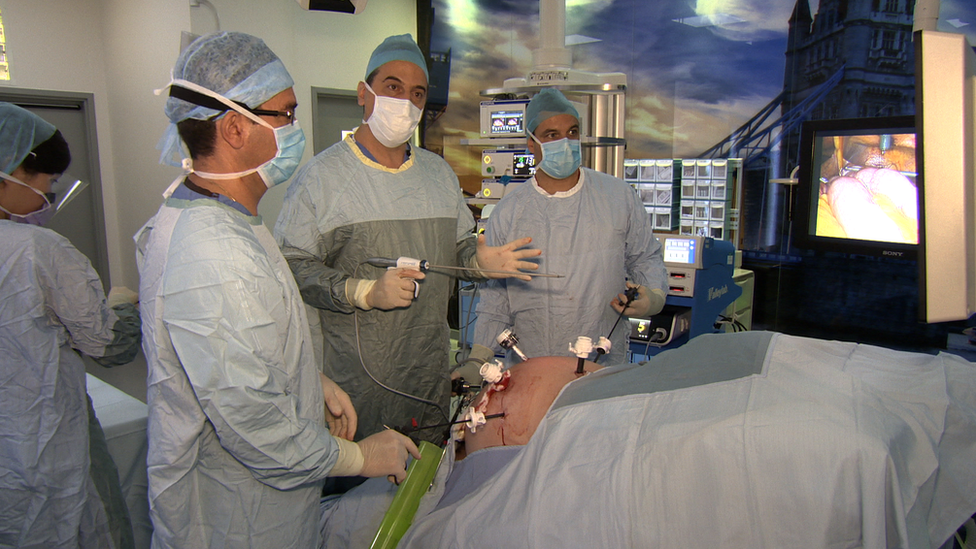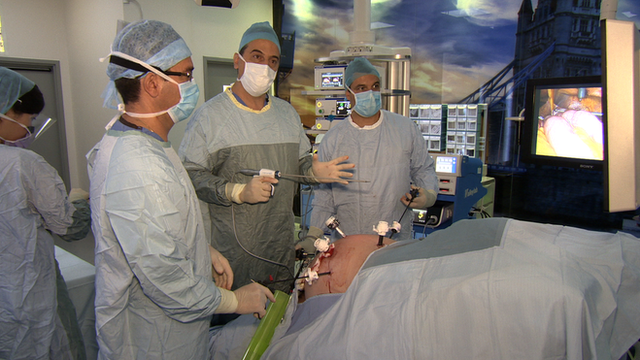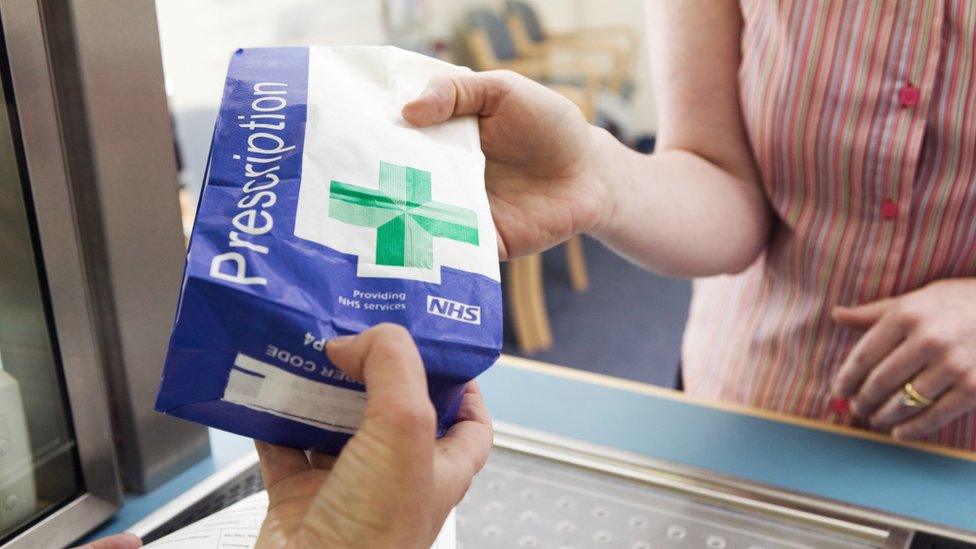Diabetes: Tenth of adults at risk of disease by 2035
- Published
Professor Rubino says increasing the number of operations would save the NHS money
Health experts are warning that one in 10 adults in the UK will be at risk of developing diabetes by 2035.
For the first time, Public Health England forecasts the number of people with the disease could top five million if obesity rates continue to increase.
About 90% of patients have type 2 diabetes, which is linked to being overweight.
A separate analysis says the cost of treating the UK's "diabetes epidemic" could soar to 17% of the NHS budget.
Experts are warning the burden of treating diabetes, especially new cases of type 2, could bankrupt the NHS.
Paul Dibbins cut off two toes when they went gangrenous
Statisticians at Public Health England have published a new forecast for the number of people who will develop diabetes in the coming years.
Their analysis includes type one, which is an auto-immune disease and accounts for about 10% of cases in the UK.
But the remaining 90% have type 2, which can be affected by where you come from and your family history, but in most cases is associated with being overweight.
In 2015, there were around 3.8 million people living with diabetes in England alone.
If obesity rates remain stable, Public Health England predicts that by 2035 that figure could have leapt to 4.9 million.
But if obesity rates increase by 3% every five years, an extra 263,000 people will have developed diabetes by 2035, putting the overall figure at more than five million.
University professor calls for legislation to tackle rise in type-2 diabetes
Chris Askew, chief executive of Diabetes UK, says there are clear implications of what he calls a "diabetes epidemic".
"As things stand we are certainly looking at a crisis in diabetes which threatens to bankrupt the NHS if we continue with these current trends.
"I believe we're facing a crisis and we really need concerted action right across society for us to fund more research, provide best possible care and crucially prevent so many cases of type 2 in the future."
At the same time, an analysis of the costs of treating complications associated with diabetes shows how they could spiral out of control.
York Health Economics Consortium says that across the UK, the NHS currently spends about 10% of its entire budget on diabetic care.
All the shoes in this shop represent a dark diabetes secret
But researchers predict that figure could rise to 17% if rates continue to grow.
Nick Hex is the economist who calculated the new figures.
"There is a fixed amount of money for the NHS so clearly if one disease area like diabetes is taking up more, a considerable amount of that cost, then there is less money to spend on cancer.
"So it's really important policymakers think about ways costs can be mitigated over next few years because there won't be enough to go round."
Those comments are echoed by Professor Jonathan Valabhji, the national clinical director for obesity and diabetes for NHS England.
"We need to stem the tide, otherwise we could see crisis and there are issues of sustainability for the NHS if we do nothing differently."

Type 2 Diabetes
Diabetes is a condition that causes a person's blood sugar to become too high.
Type 1 Diabetes can develop at any age, but often begins in childhood. It is not related to diet or lifestyle
Type 2 is far more common than type 1, but is still rare in childhood. It is usually seen in adults and is often associated with obesity
Type 2 diabetes can lead to serious complications, including kidney failure, blindness and heart disease
It's the most common cause of vision loss and blindness in people of working age
Type 2 diabetes is also responsible for most cases of kidney failure and lower limb amputation, other than accidents
People with type 2 diabetes are up to five times more likely to have cardiovascular disease, such as a stroke, than those without diabetes
Symptoms of type 2 diabetes include feeling very thirsty; passing urine more often than usual, particularly at night; feeling very tired; weight loss and loss of muscle bulk

- Published24 October 2016

- Published24 October 2016

- Published24 October 2016

- Published10 October 2016
